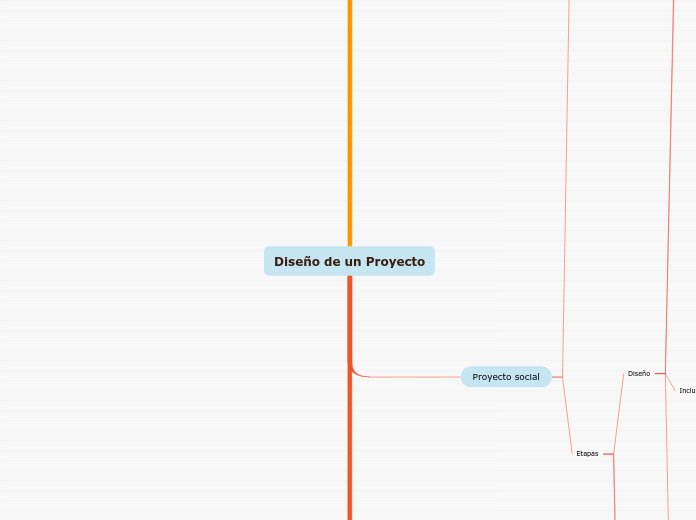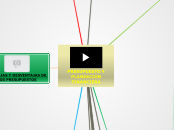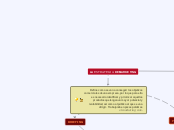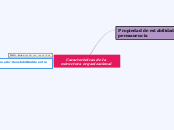Diseño de un Proyecto
To name your story, you have to think about the overall message and what you want your audience to understand from the story. Also, make it relevant and easy to remember.
Proyecto educativo
The middle of the story is where you add layers of complications that will lead to the end. Reveal more about the character's journey. Did their personality go through changes? How did they overcome the challenges? And as you build up the story’s central conflict, make it more personal to that character. Also, from the middle act, you have to lead into the final act.
OBSTACLES
There wouldn't be any tension and excitement in your story if there weren't any obstacles in your character's way.
What prevents your character from accomplishing their goal?
A story is nothing more than a character overcoming a series of difficulties to reach the desired goal. Obstacles usually create suspense and conflict. In overcoming obstacles, there is growth: weak becomes strong; hatred turns into love; sadness into happiness; wrong into right; lies into truth; or evil becomes good.
See a few examples below:
- stopping a meteor
- finding a killer
- finding love
Obstacles
Componentes
¿Bajo qué condiciones?
Supuestos.
¿Con qué? y ¿Con quienes?
Recursos-responsabilidades
¿Cuando?
Cronograma
¿Como?
Actividades
¿Donde?
Localización-ubicación-contexto
¿Cuando se va a hacer?
Metas-alcance
¿Para qué?
Objetivos-Fin
¿Por qué?
Fundamentación-propósito.
¿Que se va a hacer?
Definición-identificación-producto
Each story has a main character and that character usually needs to solve a problem or challenge. The character's challenge is the one that creates tension throughout the story.
Redacción del proyecto terminal
Se encuentra delimitada en los documentos contenidos en el formato guía
Se evalúa de distintas formas
Evaluación de los resultados
Considerar los efectos no esperados
Pero que son de interés para el proyecto.
Aquellos resultados que no están relacionados con los objetivos.
Recoge los principales
Logros
Resultados
Relacionados con los objetivos y permite
Establecer el cumplimiento de los objetivos
O formativo
Evaluación del proceso
Lo importante para conseguir un producto de calidad
Las fortalezas dominen
Las debilidades sean escasas
Cumplimiento de los tiempos.
Utilización de los recursos
Cumplimiento de la programación de actividades
Recursos
Tecnológicos
Equipos necesarios para
Materiales
Recursos a utilizar en
Instrumentación del proyecto
Humanos
Quienes participaran el el proyecto
Funciones
Roles
Planificación de acciones
Es un cronograma de trabajo
Planeación de acciones correctivas
Se estructura
Secuencia de actividades
Delimitando
Quienes las realizaran
Plazos
Que permita separar
Tareas
Fases
Propuesta de trabajo
Justificación del proyecto
Son las razones por la que se considera necesario el proyecto.
Deben describir
Sus limitaciones.
Factibilidad para su implementación
Utilidad a la comunidad educativa
La relevancia del problema.
Definición de objetivos
Objetivos
Se dividen en
Específicos
Medio necesario para lograr el objetivo general
General
Cambio general que transforma el problema central
Deben ser
Medibles
Viables
Claros, concretos y precisos.
Relacionados con la problemática
Con ellos se sabe
Lo que se espera
Lograr
Obtener
Selección y definición del problema
Type in any other challenges which other characters in the story need to face.
Tema de interes común
Problema bien delimitado
Verificar el aporte al progreso institucional
Contar con el apoyo de directivos.
Verificar que el problema tenga solución
Análisis de la situación educativa
In most stories, there are 3 challenges. The number 3 is a mystical number symbolizing completeness. Try to come up with interesting challenges with which your character needs to struggle.
See a few examples below:
- turns into a werewolf at night
- is sent back in time
Definir
Consecuencias
Causas
Opiniones
Alumnos
Docentes
Directivos
Definición de indicadores
Verificación
Realizar seguimiento
De resultados
Dirección del proyecto
Proyecto social
In the beginning of the story (or the exposition), you will need to introduce the setting and characters. You might also want to introduce the main conflict. This part of the story is important because it gives the reader necessary background information and maybe even a first insight into a character’s personality.
Etapas
The setting (time & place) of a story can change throughout the plot.
Evaluación
The weather is an important element in your story because it can highly influence the ambiance and the mood of the characters.
Tipos
Decide if you want to include an element of nature in your story. For example, a rainbow can be a very nice choice for a happy ending. The mist in a story can represent mystery and secrets. A thunder can appear in the background at the moment when the 'bad guy' of the story makes its appearance, etc.
Evaluación de impacto
Evaluación de procesos
Evaluación de diseño
Etapa de descripción
Does your story include catastrophic weather? See a few suggestions below or add your own:
- hurricane, earthquake, storm, etc
Análisis
De resultaos
Implementación
The time of the story can also change. It can describe the event of a single day or can include an entire year's plot. Anyway, don't forget to mention it.
Incluye
Operacionalidad del diseño
Asignación de tareas
Estructura
Del equipo ejecutor
Organización
La propuesta de trabajo
Se ejecuta
Se pone en marcha
Diseño
Your story can take place wherever your imagination will take you to.
For example: in an elevator, in an enchanted forest, etc. Don't forget to give details of the environment each time the setting changes, otherwise, the story can be confusing. Also, mention the seasons as each of them has unique weather and events.
Debe también explicitar
Factores externos
Incluye la propuesta de
Actividades y recursos para su desarrollo
Subtopic
Resultados esperados
Estrategia de solución
Elementos
Plan de análisis de la información
Criterios de orientación
Ordenar y procesar información
Interpretar y entregar resultados
Trabajo de campo
Deberá señalar
Como se hará el control del trabajo
Como se hará la supervisión
Asignación de entrevistas
Capacitación a los entrevistadores
En cuantos dias
Quienes recogerán la información
Forma para la recolección de datos
Determinación de
Instrumentos
Técnicas
Para recoger información
Determinación de la cobertura
Definición temporal
Definición de la muestra
Definición geográfica
Orientación o enfoque
Cuantitativo
Investigaciones basadas en la encuesta social.
Diseños cuasi-experimentales
Diseños experimentales
Las técnicas utilizadas so de tipo
Descriptivas
Distributivas
Asociado a la tradición positivista
Utilizan información
Medible
Los hechos o fenómenos son
Cuantificable
Objetivable
Concibe la realidad social como
Externa al contexto
Externa al sujeto
Estructura objetiva
Cualitativo
Ejemplos
Estudio de casos
Investigación etnográfica
La investigación-acción
Investigación participativa
Las técnicas utilizadas son de tipo estructural
Que permiten
Alcanzar
Orientaciones valóricas
Percepciones
Motivaciones
Responder los <>
Comprender el fenomeno
Utiliza información cualitativa
Los hechos o fenómenos
Es necesario comprenderlos
La realidad social
No son independientes al sujeto
La realidad social la construyen
Los sentidos subjetivos que orientan
La acción del sujeto
La conducta
Basado en la tradición
Interpretativa
Metodológica
El tiempo que dure el prouecto
Prioriza la importancia
Criterios
Variables
Es siempre una gran hipótesis
Causas y efectos del problema
Problema a resolver
Identificar beneficiarios
Location
Etapa previa a
Actividades del proyecto
Las primeras acciones
Un buen diseño debe identificar a
Characters are essential to a good story. Usually, the protagonist(s) is/are the most affected by the plot. Introduce a character by focusing on their actions, interests, and occupation, as the physical appearance doesn't make a difference in most cases.
Establecer los factores externos
Que garantizan
Choose the type of your chacter:
Protagonist (main character)Antagonist (main character's opponent)Flat (stereotypical character)Round (his/ her personality develops throughout the story)Static (doesn't evolve as a person throughout the story)Dynamic (dramatical change in personality)Confidant (the main character trusts him/ her)Foil (contrasting character who enhances the personality of another character)Other
Exíto
Su fiabilidad
Verificación de los resultados
Establecer objetivos
Justificar la estrategia
Definir estrategias
Establecer un diagnostico de la situación problema
Actores clave
Beneficiarios
Type in the name of your character.
Topic principal










